
Product Testing
Product testing generally refers to testing finished products before being shipped to customer or consumer. It differs from material testing in that an additional aspect of product geometry, product surface, etc., their influence on the product performance is tested. Some well-known examples of product testing are automotive crash testing to assess crash worthiness of the vehicle, fatigue testing of turbine blades, truck wheels, etc. Another example is fatigue testing of air frames to assess damage tolerance of aircraft structures. At Touchstone Testing Lab we have some limited capability to test product performance. We can design and fabricate test rigs to test large scale product testing when required. Some examples of product testing are listed below.
Heat Exchanger Testing
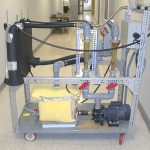 Heat Exchanger Testing is a specialized durability testing used for assessing performance of heat exchangers. Heat exchangers operate in a wide variety of atmospheres from very low temperatures to very high temperatures. A heat exchanging fluid will run through a fin and tube construction generally at high pressures. Pressures can range few bars to few tens of bars depending on the type of fluid used and the usage. Automotive radiators are good examples which run at two to three bars and under corrosive environment like road salts, etc. It is important to understand the performance of the radiators and other heat exchangers.
Heat Exchanger Testing is a specialized durability testing used for assessing performance of heat exchangers. Heat exchangers operate in a wide variety of atmospheres from very low temperatures to very high temperatures. A heat exchanging fluid will run through a fin and tube construction generally at high pressures. Pressures can range few bars to few tens of bars depending on the type of fluid used and the usage. Automotive radiators are good examples which run at two to three bars and under corrosive environment like road salts, etc. It is important to understand the performance of the radiators and other heat exchangers.
Capability – At Touchstone Testing Lab we have capability to test full size radiators, fully pressurized to actual service level and subject them to erosive and corrosive environments. We run routine testing of automotive radiators for a variety of Automotive OEMS and material manufacturers.
Crash Testing of Fabricated Components
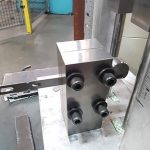 Crash testing of fabricated components is a specialized testing to assess mechanical performance of fabricated components like subassemblies of automotive body structure. These types of tests are done in a drop tower type of equipment or a horizontal crash equipment. The test provides behavior of components, which is a combination of material, geometry, and joining technology.
Crash testing of fabricated components is a specialized testing to assess mechanical performance of fabricated components like subassemblies of automotive body structure. These types of tests are done in a drop tower type of equipment or a horizontal crash equipment. The test provides behavior of components, which is a combination of material, geometry, and joining technology.
Capability – At Touchstone Testing Lab we have a 20’ tall drop tower with 130 lbs. of weight, which can be used to test components or small subassemblies of welded or fabricated automotive components like crash tube or side impact bars.
Corrosion Testing
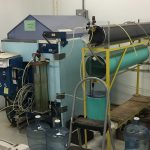
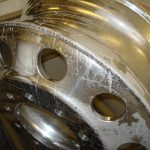 Corrosion testing of full size components assess the impact of corrosive atmospheres on components, coatings, etc. Atmospheres are in general classified in to reductive, neutral, and oxidative atmosphere. Normal air which contains oxygen can be considered oxidative.
Corrosion testing of full size components assess the impact of corrosive atmospheres on components, coatings, etc. Atmospheres are in general classified in to reductive, neutral, and oxidative atmosphere. Normal air which contains oxygen can be considered oxidative.
Thus, some materials like iron will continue to rust and become oxidized if exposed to normal air for long period of time. Reductive atmosphere occurs in equipment like furnaces, internal combustion machines, etc.
Capability – At Touchstone Testing Lab we have several large climate and environmental cabinets to test full size components like truck wheel, auto wheels, automotive radiators, etc., under a variety of atmospheres.
Mechanical Testing of Full Sized Components
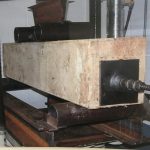 Mechanical testing is accomplished by forcing a part or materials sample to fail by the application of various types of mechanical loads. It is also known as destructive testing because during testing part or sample may break in to two or several parts. In contrast, non-destructive testing does not affect the part’s future usefulness and leaves the part and its component materials intact. Often it may be required to test full size or scaled model of a product to assess the load bearing capabilities fracture behaviors of components. These require test framed with high force capabilities.
Mechanical testing is accomplished by forcing a part or materials sample to fail by the application of various types of mechanical loads. It is also known as destructive testing because during testing part or sample may break in to two or several parts. In contrast, non-destructive testing does not affect the part’s future usefulness and leaves the part and its component materials intact. Often it may be required to test full size or scaled model of a product to assess the load bearing capabilities fracture behaviors of components. These require test framed with high force capabilities.
Capability – At Touchstone Testing Lab we have test frames with force capability up to 120,000 pounds to run tensile, bending, compression tests of metal, concrete, cement, etc., blocks, beams, profile, etc.
Mechanical Testing of Bio Medical Implants
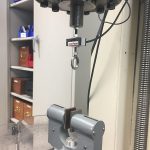 With the advancement in bio engineering, specially implant technology, several small and medium sized implant producers like to have their products tested for a variety of mechanical and biochemical environments. The implants are made from regular metallic alloys to polymers to ceramic composites. Many of these implants are small to medium sizes components, which are highly customized for consumers and manufactured often by model manufacturing technologies like additive manufacturing, 3D printing, etc.
With the advancement in bio engineering, specially implant technology, several small and medium sized implant producers like to have their products tested for a variety of mechanical and biochemical environments. The implants are made from regular metallic alloys to polymers to ceramic composites. Many of these implants are small to medium sizes components, which are highly customized for consumers and manufactured often by model manufacturing technologies like additive manufacturing, 3D printing, etc.
Capability – At Touchstone Testing Lab we can design and manufacture customized fixtures to test these components for mechanical and bio chemical performances. We have test frames with load capability from few milli-newtons to several kilo newtons to test orthopedic implants, ocular implants, stents, etc.
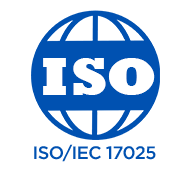
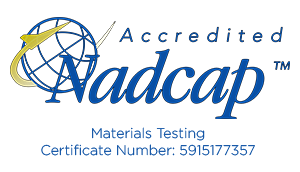
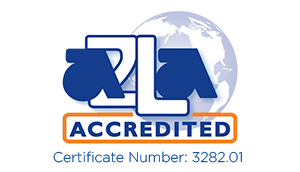
Touchstone is committed to providing its customers with quality, reliable test results. That is why we have undertaken the rigorous steps needed to meet and secure the most stringent of test lab accreditations including ISO/IEC 17025, NADCAP 7101 (Materials Test Lab) and NADCAP 7122-I (Non-Metallics Materials Testing).
© 2024, Touchstone Testing Labs | Design by Wheelhouse Creative

